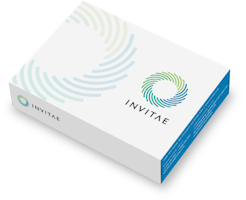
Invitae Personalized Cancer Monitoring™ - Monitoring Test
Test code: 90003
Fast turnaround
This test has a faster turnaround time than most Invitae panels.
Test description
The Invitae Personalized Cancer Monitoring – Monitoring Test is a patient-specific assay that has been designed to assess the presence or absence of a patient’s tumor-specific genetic signature in a non-invasive blood sample. Circulating tumor DNA (ctDNA) analysis allows for minimal residual disease (MRD) detection and monitoring of anti-cancer treatment effects including determination of relative quantitative changes in ctDNA abundance over time. This test is specifically designed for the detection of somatic mutations and is not appropriate for the identification of heritable germline mutations.
Ordering this Monitoring Test requires a previously ordered Invitae Personalized Cancer Monitoring – Baseline Test for the patient.
Invitae cannot accept specimens for Invitae Personalized Cancer Monitoring from pregnant patients or patients with active hematological malignancy, history of allogeneic bone marrow/stem cell transplants, or within 2 weeks after blood transfusion. If you have additional questions regarding specimen selection, please contact our clinical team. Learn more.
For information about using this test for biopharma or other research opportunities, please contact us through this form or email partners@invitae.com.
Currently available in the US, Canada, and Singapore.
Ordering information
Turnaround time:
7-14 calendar days on averageNew York approved:
NoPreferred specimen:
Two full Streck Cell-Free DNA blood collection tubes collected at appropriate time point (10mL each)Learn more about specimen requirementsRequest a specimen collection kitAssay information
Invitae Personalized Cancer Monitoring is a patient-specific, customized assay that has been designed to assess the presence or absence of a patient’s tumor-specific circulating tumor DNA (ctDNA) signature in a non-invasive blood sample. Such results can be used for detecting minimal residual disease (MRD) over time, early detection of tumor recurrence, and providing prognostic information for better patient management. In patients receiving anti-cancer treatments, including immunotherapy, the test can provide information on extent and dynamics of treatment response. This assay uses exome sequencing of a patient's tumor and blood specimens to identify tumor-specific variants for inclusion in the patient-specific panel. This panel is subsequently used to to detect ctDNA in the patient’s peripheral blood using high throughput next generation sequencing (NGS). It features a patient specific panel design between 18 and 50 variants and demonstrated a sensitivity of >99% for detecting ctDNA at variant allele frequencies as low as 0.005% with 60ng of input and as low as 0.02% AF with 5ng of cfDNA in validation studies.
A patient report with a ctDNA status of “Detected” signifies that the sample met QC acceptance criteria and a measurable disease signature was detected. A patient report with a ctDNA status of “Not Detected” signifies that the sample met QC acceptance criteria and a measurable disease signature was not detected. A patient report with a ctDNA status of “Results Are Unavailable” signifies that the sample did not meet QC acceptance criteria and no assessment of the measurable disease signature could be made.
Relapsed or residual disease may occur with a genomic signature that is different from the genomic signature detected in the original tumor sample submitted for the patient. In addition, low amounts of tumor-specific circulating material relative to circulating nucleic acid derived from normal, non-tumor tissue may result in a lower signal that is not detectable with this technology. This methodology is designed to minimize false negatives arising from sample swaps, however, those risks are not eliminated. When the molecular signature is not detected, the result does not eliminate the risk that disease is still present and does not guarantee present or future health.
The test was developed, and its performance characteristics were determined by Invitae, a College of American Pathologists (CAP)-accredited and Clinical Laboratory Improvement Amendments (CLIA)-certified clinical diagnostic laboratory. The report and the methods used to generate the report have not been cleared or approved by the U.S. Food and Drug Administration (FDA). This test is used for both clinical and clinical research purposes. Pursuant to the requirements of federal regulations listed in the Clinical Laboratory Improvement Amendments of 1988 (CLIA), this laboratory has established and verified the test’s accuracy and precision. However, a false positive or false negative result incurred during any phase of the testing can not be completely excluded. This laboratory is certified by CLIA to perform high complexity testing (CLIA # 31D2142534) and is located at 485F US Route 1 South, Suite 110, Iselin NJ 08830.
Invitae Personalized Cancer Monitoring™ - Monitoring Test
Question about billing?
Find answers